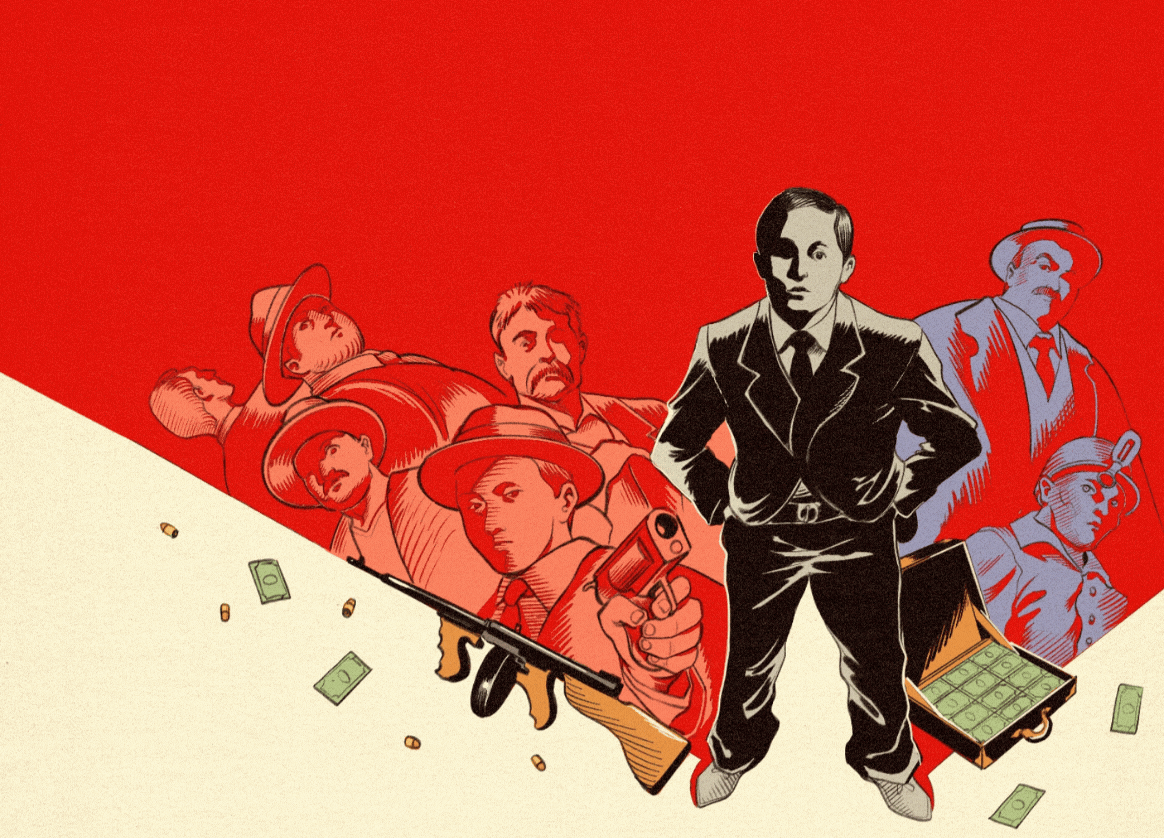Legend of Lucchino, Part III: A Marked Man
In booming Pennsylvania coal country, immigrant Italians were exploited by corporations and terrorized by mafiosi. One brave insider turned against them, risking everything to stand up for workers.
This is Part III of our four-part series, “The Legend of Lucchino: The Man Who Took on the Mob.” If you haven’t read Parts I and II yet, click here to start at the beginning . (If you prefer to read the whole story on one page, click here.)
Two months after the loss of their child, Sam Lucchino was walking along Railroad Street, talking to a wealthy local Italian named Charles Consagra.
A light snow fell, and moonlight shone brightly down on Pittston. Lucchino and Consagra were deep in conversation when two gunshots suddenly rang out, fired at close range into the side of Lucchino’s neck. He collapsed to the ground, his blood staining the snow. He later claimed that in his semiconscious state, he saw Charles Consagra frantically running around, trying to find help.
Neighbors rushed over and carried Lucchino up the road to the house where he and Nellie lived on Railroad Street, “where his bride of three months was horrified at the murderous attempt upon her husband’s life.”


